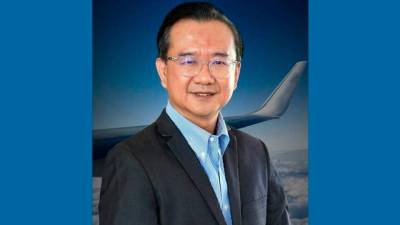KUALA LUMPUR: The International Air Transport Association (IATA) hopes that the Budget 2026 will feature measures to strengthen Malaysia’s aviation industry, underscoring its role as a vital contributor to the national economy and tourism sector.
IATA regional vice-president (Asia-Pacific) Sheldon Hee said aviation is an important contributor to the Malaysian economy; therefore, policies being considered need to analyse and avoid any potential impact on airlines and passengers, particularly taxes, levies or any fees related to security and border control measures.
“The industry contributes US$14.4 billion (RM68 billion) to Malaysia’s economy annually and supports more than 650,000 jobs, including 100,000 directly employed in the aviation sector,” he told Bernama recently.
Hee noted that Malaysia’s strong position as an international travel hub relies on policies that enable efficiency and competitiveness, pointing out that higher operating costs could affect airlines, passengers and ultimately Malaysia’s connectivity with the world.
On sustainability, he said the delivery of the first locally blended sustainable aviation fuel (SAF) by Petroliam Nasional Bhd was a welcome development for the industry.
“IATA has been engaging the government on its plan to introduce a robust SAF policy in 2027, in line with global efforts to decarbonise aviation,” he said, adding that IATA has submitted six policy recommendations for consideration in Budget 2026.
The recommendations include ensuring that policies are stable, predictable and supportive of renewable energy (RE) and fuel production, and that they are flexible enough to address unintended consequences.
Other recommendations were to ensure SAF pricing transparency, provide certainty for airlines to claim environmental benefits from SAF and avoid introducing SAF mandates as a stand-alone measure without incentives to help bridge the price gap with conventional fuel.
Besides that, he said, IATA also urged the recognition of a global SAF accounting and reporting methodology, which would help enable wider market access and participation in international SAF trading.
“With aviation in the Asia-Pacific expected to be the fastest growing segment in the next 20 years, addressing capacity challenges will be key,” Hee said, adding that Malaysia is well-positioned to benefit from this growth if the right policies are in place.
He said incentives to boost efficiency and productivity, such as the digitalisation of airport processes through IATA’s ONE ID for passengers and ONE Record for cargo, would provide significant benefits.
ONE ID is used to streamline the passenger journey with a document-free process based on identity management and biometric recognition.
Meanwhile, ONE Record is a data-sharing standard that provides a single view of shipments through a common data model and web application programming interface, enabling end-to-end digital logistics.
Additionally, Hee said that training incentives were needed to ensure Malaysia develops the skilled manpower required to meet future demand in the industry.
He stressed that aviation not only creates jobs directly but also supports wider economic activities such as tourism, trade and investment.
“Each flight that connects Malaysia to the world contributes to economic opportunities. Ensuring the sustainability and competitiveness of aviation will therefore translate into broader economic and social benefits for the country,” he added.
He affirmed that IATA remains ready to share the industry’s perspectives and collaborate with the government to ensure that policies in Budget 2026 harness the full potential of international aviation.
